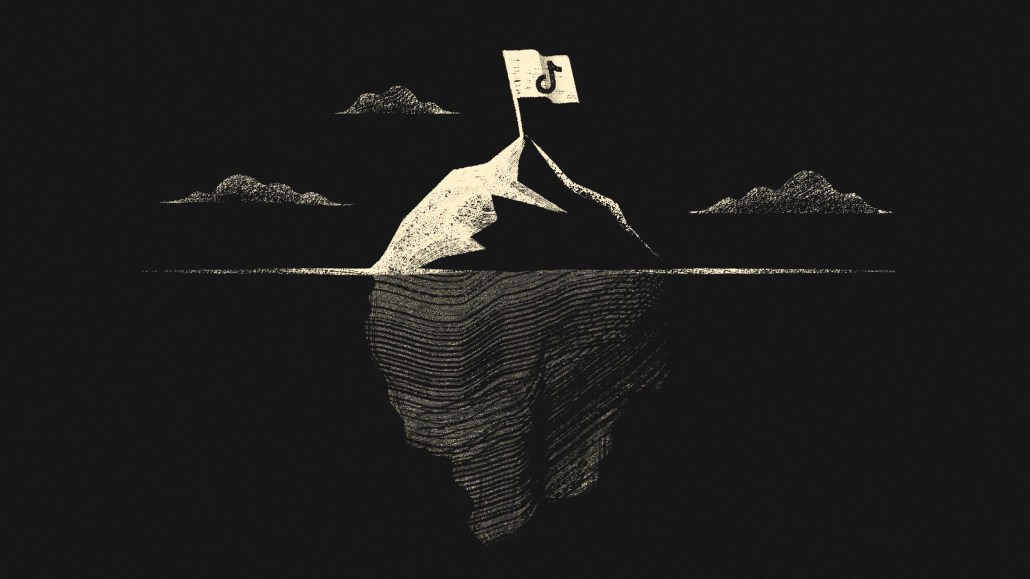Secure your place at the Digiday Media Buying Summit in Nashville, March 2-4

As a Digiday+ member, you were able to access this article early through the Digiday+ Story Preview email. See other exclusives or manage your account.This article was provided as an exclusive preview for Digiday+ members, who were able to access it early. Check out the other features included with Digiday+ to help you stay ahead
In spite of the weekend’s momentary TikTok shutdown, sales on TikTok Shop didn’t miss a beat.
The hours-long TikTok shutdown on Jan. 18 and 19 did not have a negative impact on the platform’s sales over the weekend. In fact, TikTok Shop sales spiked in the days immediately preceding the ban, as well as on the day that the ban was lifted.
On Jan. 19, the day the outage was lifted, total sales volume on TikTok Shop amounted to $32,064,590, according to data shared by the e-commerce data platform Charm.io — an over $500,000 jump from the total sales figure of $31,429,366 on Jan. 18, and a nearly $5 million week-over-week increase from the total sales of $27,536,680 on Jan. 12. The post-outage spike in sales was on track with a general increase in TikTok Shop activity that began in the lead-up to the potential ban.
“This weekend was a big problemo, but fortunately, it obviously got solved quick,” said Jake Bjorseth, head of strategy for the Gen Z marketing agency Trndsttrs. “So, I don’t think, in that 12-hour window, our revenue would have been significantly impacted — but I can tell you that it’s definitely impacted things this year, and over the past 45-to-60 days.”
For TikTok creators and sellers such as Daniel “StonerGump” Gossard, who told Digiday that most of his sales occur during the week, the weekend’s momentary TikTok shutdown did not cause a significant disruption in business. When users returned to TikTok on Jan. 19, however, the influx resulted in another immediate spike in sales followed by a return to the pre-shutdown sales volume for Gossard’s cannabis cookbooks.
“Today [Wednesday, Jan. 22], we just packaged 37 orders [from Jan. 21], versus Monday, when I had like 190,” said Gossard. He described the 37-order figure as normal and added that sales of his cannabis cookbooks on TikTok Shop increased by at least 50 percent in the two weeks prior to the ban.
The potential TikTok ban is a particular threat to brands and content creators that have developed a presence on TikTok Shop, the social commerce offering launched by TikTok in 2023. On a platform with relatively limited monetization opportunities compared to some of its rivals, TikTok Shop represents a more concrete revenue stream for both large and small creators.
As the ban loomed in recent weeks, TikTok Shop sellers scrambled to prepare, with some taking preemptive steps to move their retail business to alternative platforms such as Facebook and Instagram. Fueled by fears of missing out once TikTok Shop went away for good, consumers flooded the platform with activity in the weeks ahead of Jan. 19.
In the week of Jan. 5, TikTok Shop accounted for $168,221,927 in sales, according to Charm.io’s data — a significant increase over 2024’s average weekly sales of $139,172,005. In the week of Jan. 12, directly preceding the ban, sales totaled $200,475,975, reaching a single-day peak of over $43 million on Jan. 16. Aside from the annual spike in sales during the end-of-year holiday period, the week before the ban represented TikTok Shop’s highest sales figures of the past 12 months.
“I think it’s just disbelief, and people being like, ‘screw this, we don’t want to stop using TikTok,’” said Charm.io CEO Alex Nisenzon. “They didn’t change their behaviors, and instead they kind of doubled down — that’s really evident based on the data we saw.”
In addition to the fear of missing out on purchases once TikTok went dark, one reason why consumers doubled down on the platform both before and after the brief ban could be due to the relatively deep connection between creators’ communities and social commerce presences. On TikTok, more than any other prominent social commerce platforms, creators find it easy to drop links to their products in the descriptions of videos, and believe it requires less effort to convince fans on TikTok to make a sale.
Although creators are on the hunt for alternative social commerce platforms to replace TikTok Shop in the case of a more lasting ban, at the moment there is not a clear-cut alternative platform that stands to benefit most from a true shutdown.
“We were able to add members to our team because of TikTok Shop,” said Tiffany English, a TikTok creator and the co-founder of the beverage brand The Happiest Hour, which sells on TikTok Shop. “They were worried about our jobs, so we were like, ‘we’re going to do everything we can to replace those sales and keep you.’ But can we replace half of our sales this quickly? I don’t know.”
More in Marketing

Future of Marketing Briefing: AI’s branding problem is why marketers keep it off the label
The reputational downside is clearer than the branding upside, which makes discretion the safer strategy.

While holdcos build ‘death stars of content,’ indie creative agencies take alternative routes
Indie agencies and the holding company sector were once bound together. The Super Bowl and WPP’s latest remodeling plans show they’re heading in different directions.

How Boll & Branch leverages AI for operational and creative tasks
Boll & Branch first and foremost uses AI to manage workflows across teams.








